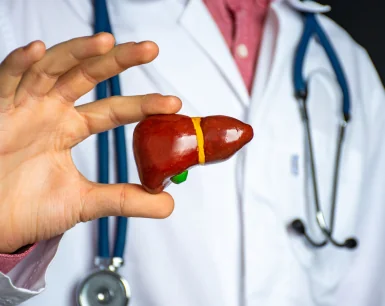Preparing for gastric sleeve surgery is a big step and one that can bring about a whole new chapter in your health and wellbeing. But before you get to the operating theatre, there’s an essential part of your journey that deserves just as much attention: the pre-operative (pre-op) diet.
Following this special diet is one of the most important things you’ll do in the lead-up to surgery. Not only does it make the procedure safer, but it also helps your body start adjusting to your new lifestyle. Whether you’re having weight loss surgery privately or through the NHS, this guide will help you understand what to eat, why it matters, and how to stick to the plan.
Why Is the Pre-Op Diet So Important?
Most people preparing for gastric sleeve surgery have extra fat stored in and around the liver. This can make the liver larger and more fragile. This condition, called fatty liver disease, can make the liver larger and more fragile. During surgery, your surgeon needs to lift the liver to access your stomach, so if the liver is too big or heavy, it can make the procedure more difficult or risky.
That’s where the pre-op diet comes in. Following a low-calorie, high-protein, low-carbohydrate meal plan helps shrink the liver and reduce its fat content. According to research published in the British Journal of Surgery, patients who follow a pre-op diet can reduce their liver size by up to 30% in just two weeks.2
This not only lowers the chance of complications, but also increases the likelihood that the procedure can be done laparoscopically (keyhole surgery), which usually means faster recovery, fewer scars, and a shorter hospital stay.
What Does the Pre-Op Diet Involve?
Your exact plan may vary slightly depending on your surgeon or dietitian, but most UK bariatric clinics follow similar principles. Here’s what your diet will typically include:
High-Protein, Low-Carbohydrate Foods
Protein is your best friend during this time. It helps protect your muscles, keeps you feeling full, and encourages your body to burn fat for energy.
Approved protein-rich foods include:
- Lean meats (chicken, turkey, lean beef)
- Fish (such as cod, haddock, tuna, and salmon)
- Eggs
- Low-fat dairy (like cottage cheese or plain Greek yoghurt)
- Plant-based options (tofu, beans, lentils)
Avoid processed meats like sausages or breaded items—they tend to be high in fat and carbohydrates.
Limit or Avoid Carbohydrates
Cutting down on carbohydrates (often termed “carbs”) helps your body use up stored glycogen in the liver, which is linked to excess water and fat.
Avoid or strictly limit:
- Bread, pasta, rice
- Potatoes & other starchy veg
- Sweets, biscuits, cakes
- Fizzy drinks and fruit juices
It’s not easy if you’re used to a carb-heavy diet, but most people notice their cravings reduce after a few days. Some people find it better to gradually taper their diet down before the strict time frame (2-4 weeks) set out by your bariatric team.
Meal Replacement Shakes
Many bariatric teams in the UK recommend incorporating meal replacement shakes, especially if you struggle with portion control or need structured guidance.
Look for options that stick within the limits of 800 calories and 100g total carbohydrates per day and are:
- High in protein
- Low in sugar and carbs
- Balanced with vitamins and minerals
It is advisable to check with your dietitian before choosing any choice or brand, as they may have preferred products or quantities to follow.
Hydration
Drink at least 2 litres of fluid daily. Water, sugar-free squash, and herbal teas are great choices.
Avoid:
Fizzy drinks (including diet versions)
- Alcohol
- Caffeinated drinks, which can cause dehydration and bloating (limit as much as possible; we understand that a little caffeine can help people through the liver reduction diet!)
- Keeping hydrated also helps with cravings and side effects like headaches or dizziness.You have higher fluid requirements when you follow the lover reduction diet as your body will be losing water alongside glycogen– remember to drink!
How Long Do I Need to Follow the Pre-Op Diet?
Most patients in the UK are asked to follow the pre-op diet for 2 to 4 weeks before surgery. This duration depends on your BMI, liver size, and other health factors. If your BMI is under 40, two weeks may be enough. If your BMI is higher or you have diabetes or fatty liver disease, your surgeon may recommend 3–4 weeks or longer.
Follow your bariatric provider’s advice closely, this part of the journey is critical.
Tips for Staying on Track
It’s completely normal to find the pre-op diet challenging at times. Here are a few practical tips to help you stay focused:
Plan Ahead
Batch-cook meals and portion them out for the week. Have healthy snacks ready, so you’re not tempted to stray.
Don’t Go It Alone
Ask your provider if there’s a support group or Facebook community for bariatric patients in the UK. Talking to others who understand what you’re going through can make a big difference. If you live with other people, make sure they are on board and help you as much as possible i.e. not eating high calorie foods in front of you, or keeping them separately and out of reach.
Tackle Cravings Smartly
Feeling tempted? Reach for a boiled egg, or some cucumber and pepper batons. Don’t forget to count this within your daily calorie and carbohydrate limit. Sometimes a salty drink like Bovril can help with cravings, or simply drinking a glass of water.
Remind Yourself Why
Write down your goals—improved mobility, better health, more energy—and read them when you feel your willpower fading. It may help to stick these somewhere visible like the fridge or kitchen cupboards.
What may be the possible side effects of pre-op diet?
You might feel a little off in the first few days as your body adjusts. Some common side effects include:
- Headaches
- Fatigue
- Dizziness
- Hunger pangs
- Mood changes
These usually pass within 3–5 days. Keep sipping water and getting your protein in (aim for 60-80grams per day)—it really helps.
What If I Don’t Follow the Diet?
Skipping the pre-op diet or not sticking closely to it can lead to serious consequences. If your liver hasn’t shrunk enough:
- Your surgeon may not be able to operate safely.
- You might require open surgery instead of laparoscopic.
- In some cases, your surgery could be postponed or cancelled altogether.
The National Institute for Health and Care Excellence (NICE) emphasises that patients who follow the pre-op diet have fewer complications, smoother recoveries, and better weight loss outcomes long term. Following the pre-op diet may not be easy, but it’s temporary, and it’s a vital part of your success. By sticking to a structured, high-protein, low-carb plan, you’re setting yourself up for a safer surgery and a stronger start to your weight loss journey.
If you have questions or worries or feel unsure at any stage, don’t hesitate to contact your bariatric team. They’re there to support you every step of the way. You’re already making an incredible step towards a healthier, more confident future. Keep going—you’re worth it.




